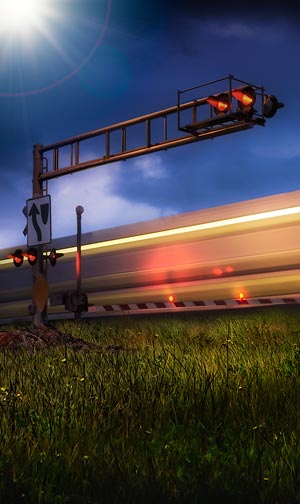Lebanon and North Lebanon Township appealed a decision requiring them to pay for a crossing gate at a problematic crossing which has been the site of several deadly vehicle-train collisions. Pennsylvania Supreme Court denied the appeal, to the shock of the two municipalities’ officials. Norfolk Southern denied that they had any responsibility to pay for crossing gates (historical amnesia? logical blunder? creative corporate ploy? – likely a mix of all three). The decision might prove significant for Pennsylvania. A mentality of “if you want it, you pay for it” might work for larger municipalities needing safer railroad crossings, but likely not for smaller communities with the same problems.
Municipalities and railroads have separate responsibilities at railroad crossings. Historically, railroads must ensure a safe place for the public to cross. This particular crossing has been shown to be particularly dangerous – and thus adequate safety devices must be installed to prevent tragic losses from mounting. Consistent with history, one would expect railroad companies to take on that responsibility. But, large corporations from time to time have a way of twisting legislation until it suites their own ends, so perhaps rulings of this sort shouldn’t be too surprising. The important issue is not about the precise details of the legislation, but rather: pragmatically, how are more lives going to be saved? Railroads have an obligation towards public safety, and when they neglect that obligation, lives are lost. If the full burden is placed on the public, then certain necessary changes simply won’t happen – what with the widespread problem of dangerous crossings with failing or non-existent warning devices, to structural problems of safety engineering and technology, we absolutely need all sides to refuse to point fingers but rather to strive to work together for real, life-saving solutions.
On a slightly more uplifting note, Norfolk Southern is agreeing to pay for another gate in the area and for its maintenance. Perhaps an inconsistency on their part, but at least there is one instance here of the railroad doing the right thing.


